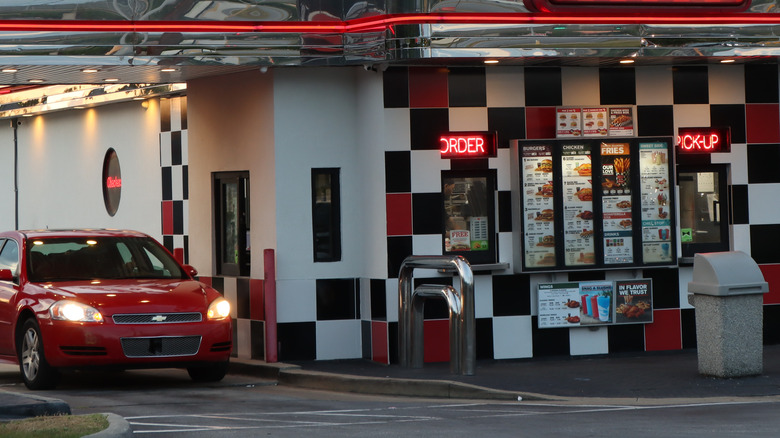From the rise of digital ordering apps to the ubiquity of self-service kiosks, there’s no question whether the food service industry has been quick to embrace tech-forward innovation. As automation progresses, ordering systems powered by Artificial Intelligence seem to be next up on the menu for better or worse.
Indeed, AI technology is already being integrated at fast-food chains including Jersey Mike’s and McDonald’s. And though Gen Z and millennial customers mostly have mostly shown favor towards automated ordering systems, they have quickly taken to social media to complain about the apparent failures when it comes to AI. As Look reported last year, AI mistakes have led to more expensive orders, while posts detailing frustrating interactions with the bots have practically become its own genre on TikTok. User @resinsbiren’s now-viral 2023 video explains a run-in with McDonald’s AI that resulted in nine sweet teas being added to her order at checkout, while another user, @themadivlog recorded herself arguing with the system as she struggles place a simple order of ice cream and water.
Restaurant tech company Presto Automation, for one, is embracing the mistakes made by its AI drive-thru system in order to make it smarter and more efficient in the long run. The company’s plan to totally eliminate humans’ role in managing the AI-powered machines, which can be found at Checkers and Carl’s Jr., involves giving the system more independence. However, less human interference may mean more errors, at least at first.
Presto Automation says AI needs to get worse before it gets better

Late last year, Presto stirred up quite a bit of controversy when it was revealed that much of its AI system was actually dependent on human oversight. According to filings made to the United States Securities and Exchange Commission, around 70% of orders placed through Presto’s drive-thru assistants have required a human touch to ensure accuracy, which they received primarily from remote workers in the Philippines, as reported by Bloomberg at the time.
But now, the company’s interim CEO Gee Lefevre says that human interference is holding the AI back from reaching its full potential. “We’re artificially repressing the efficiency of the AI, but also we’re limiting its ability to learn because we’re curtailing the edge cases,” Lefevre recently told Restaurant Business Online. The publication reports that through the rollout of a Pure AI model, Presto plans to give the system more “freedom” in order to better enable learning — and alleviate some of the company’s reported financial problems.
Nevertheless, Lefevre has no illusions about what that will likely mean for the drive-thru technology early on, expressing that the AI will “perform worse at first, but would improve quickly” as it becomes more independent. In that case, it sounds like restaurants participating in the rollout should prepare to field an uptick of customer complaints, and expect any order troubleshooting to be hoisted onto its own human employees until Presto’s Pure AI works out its kinks.







